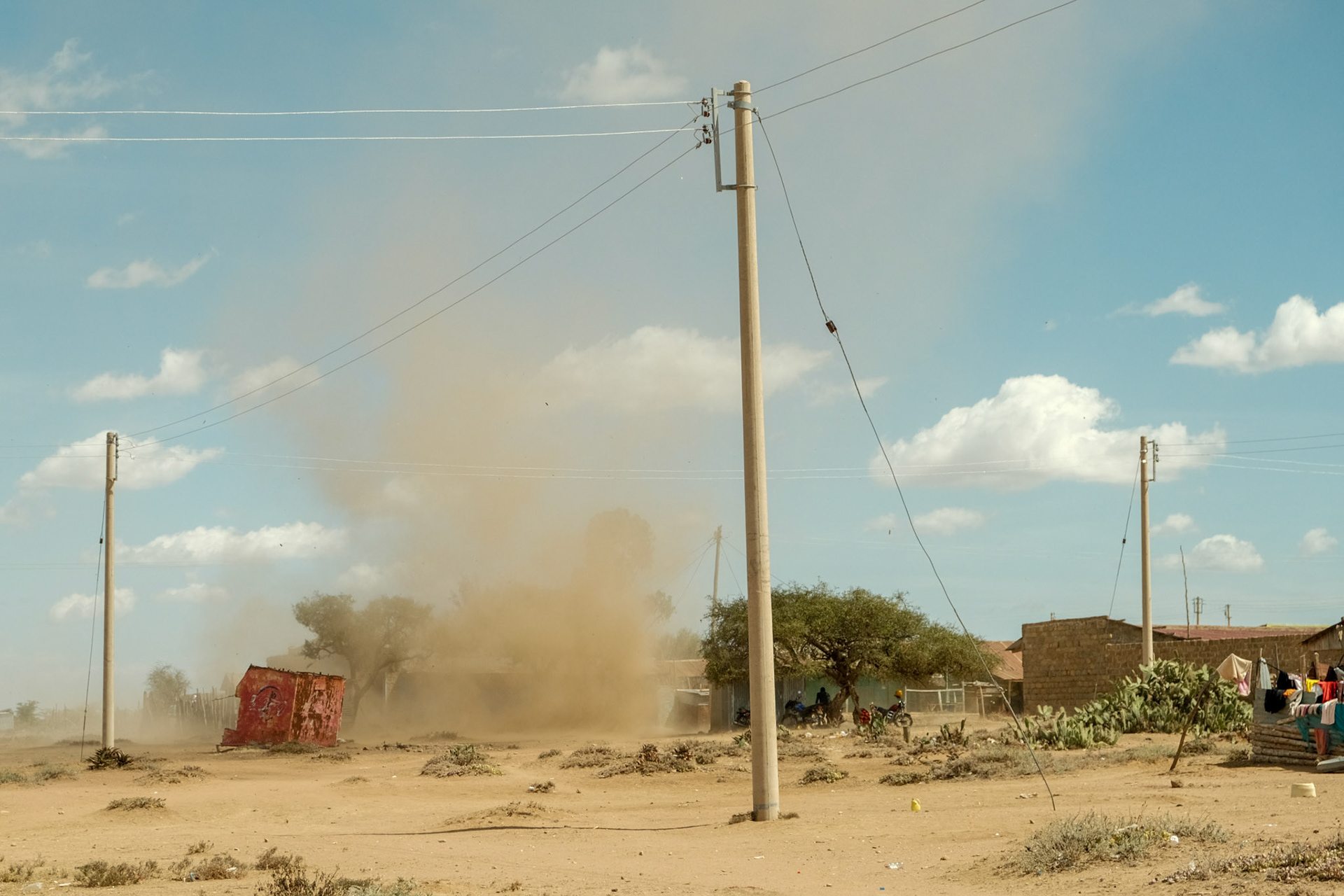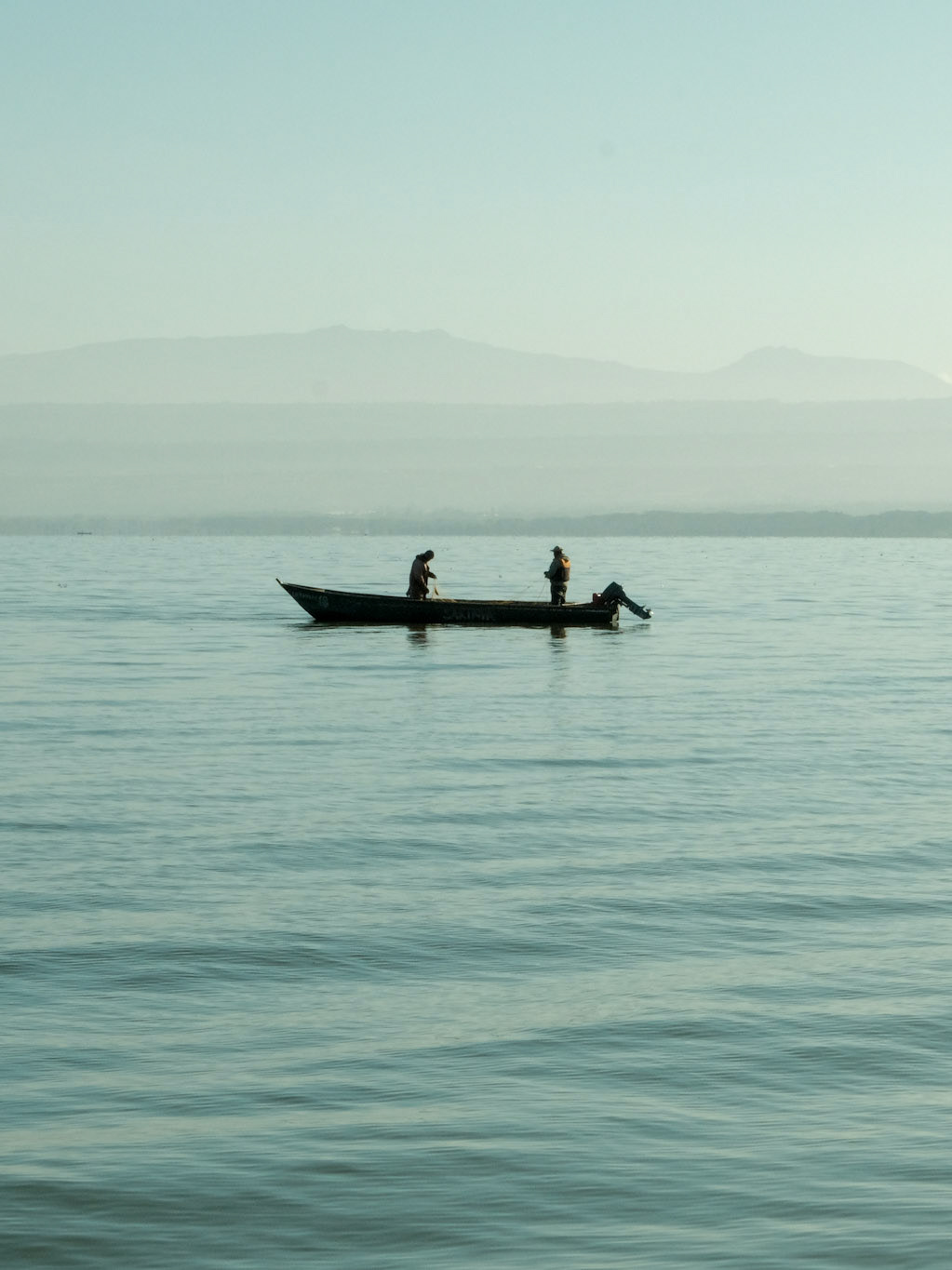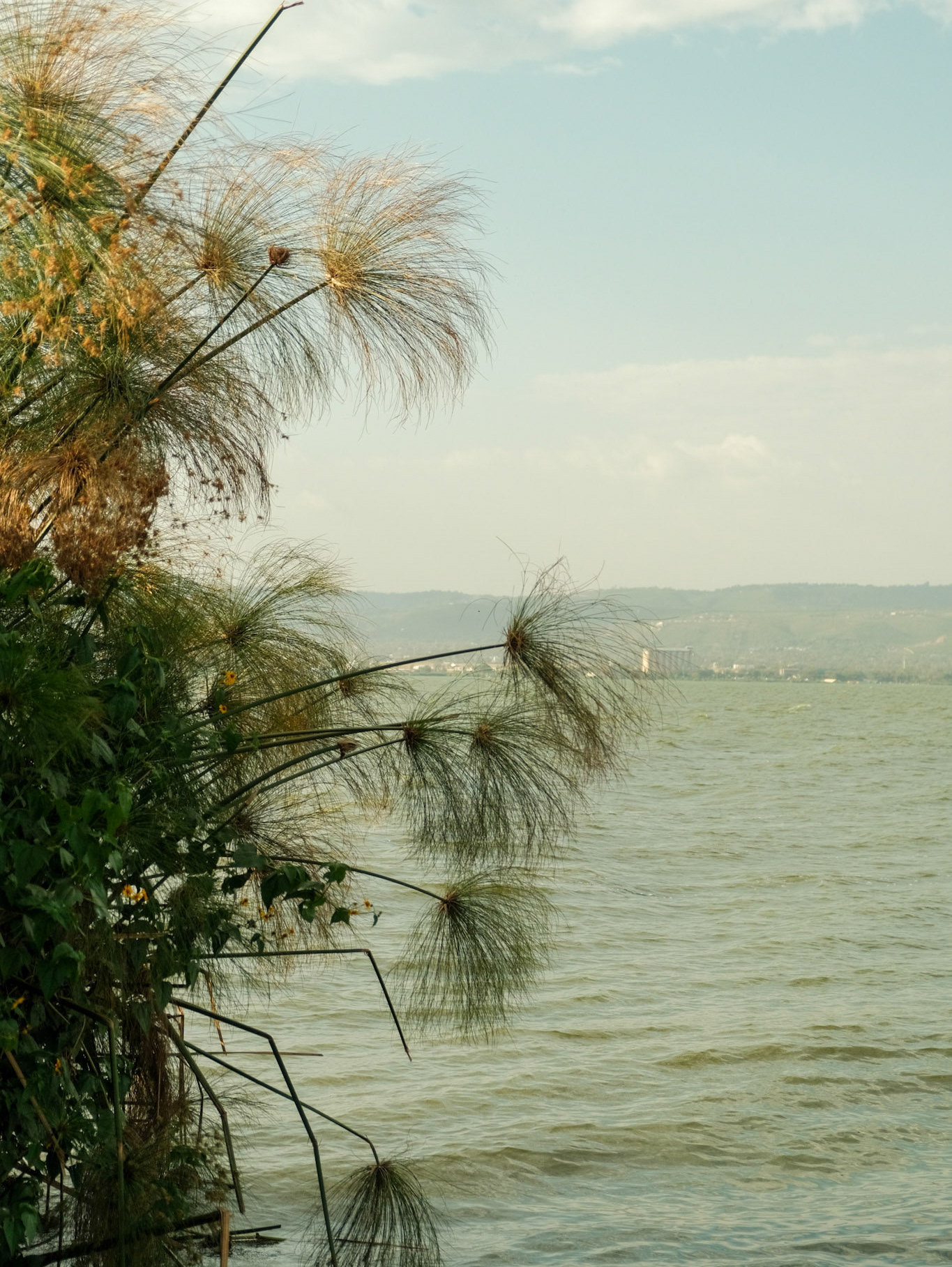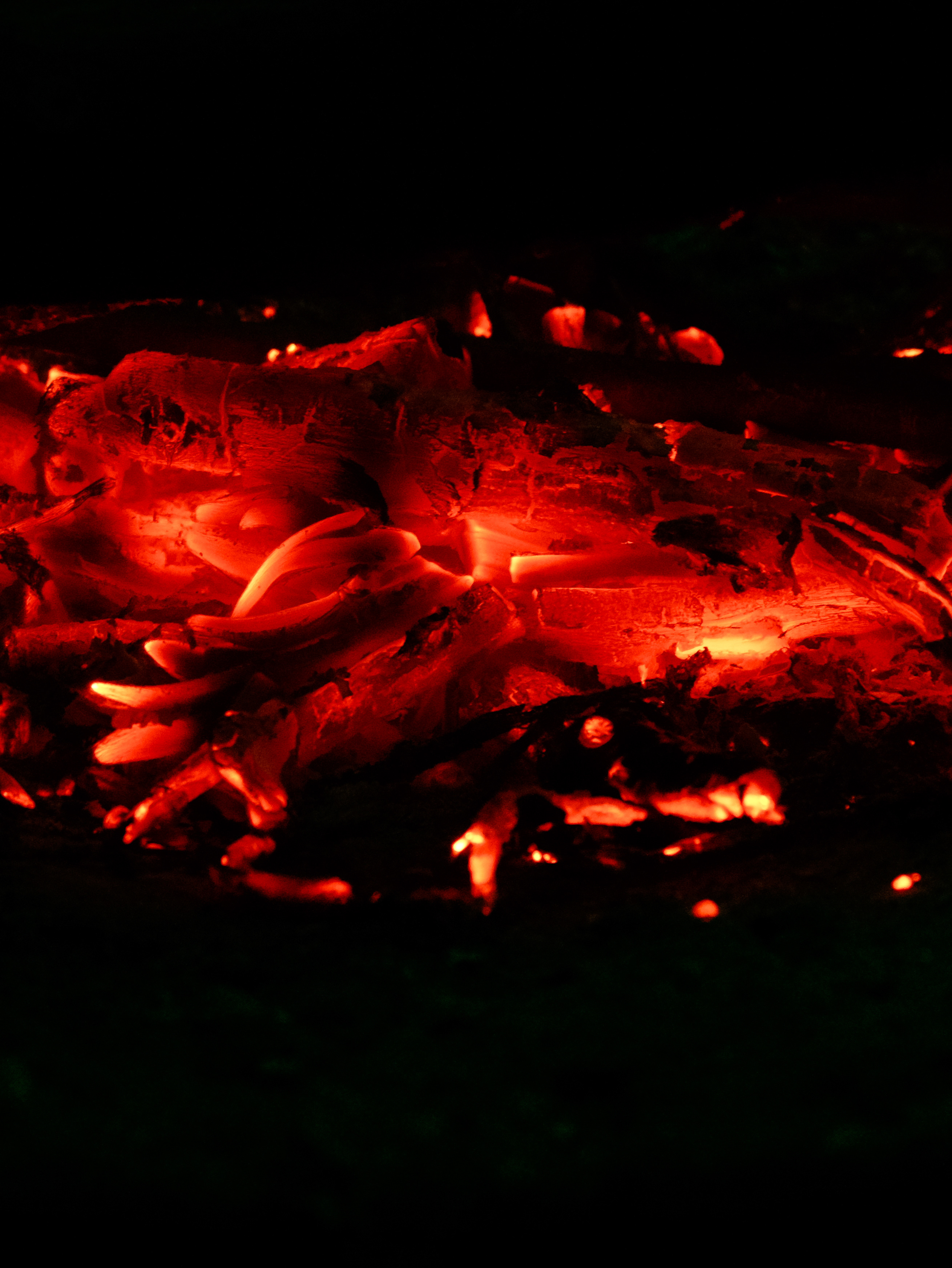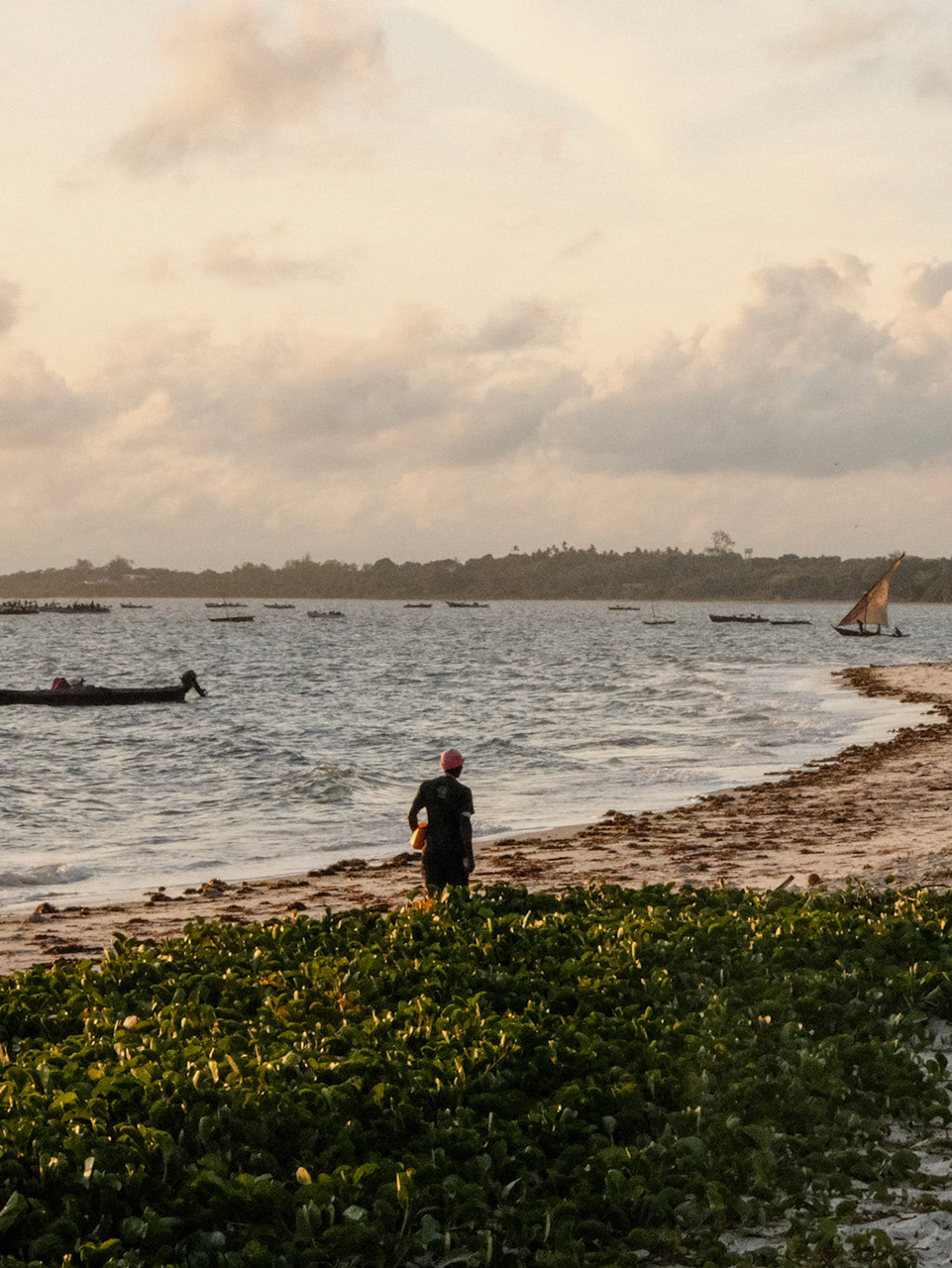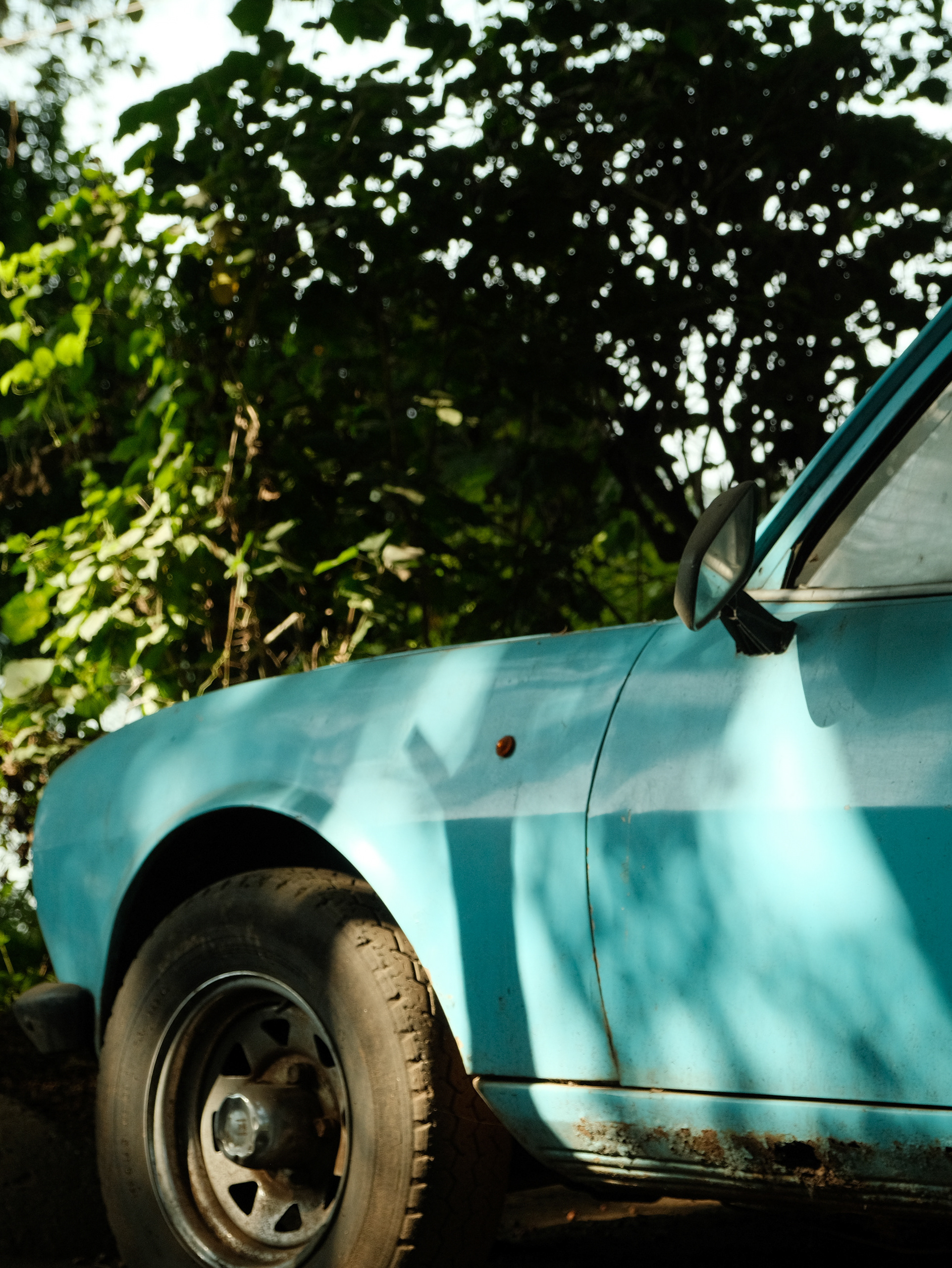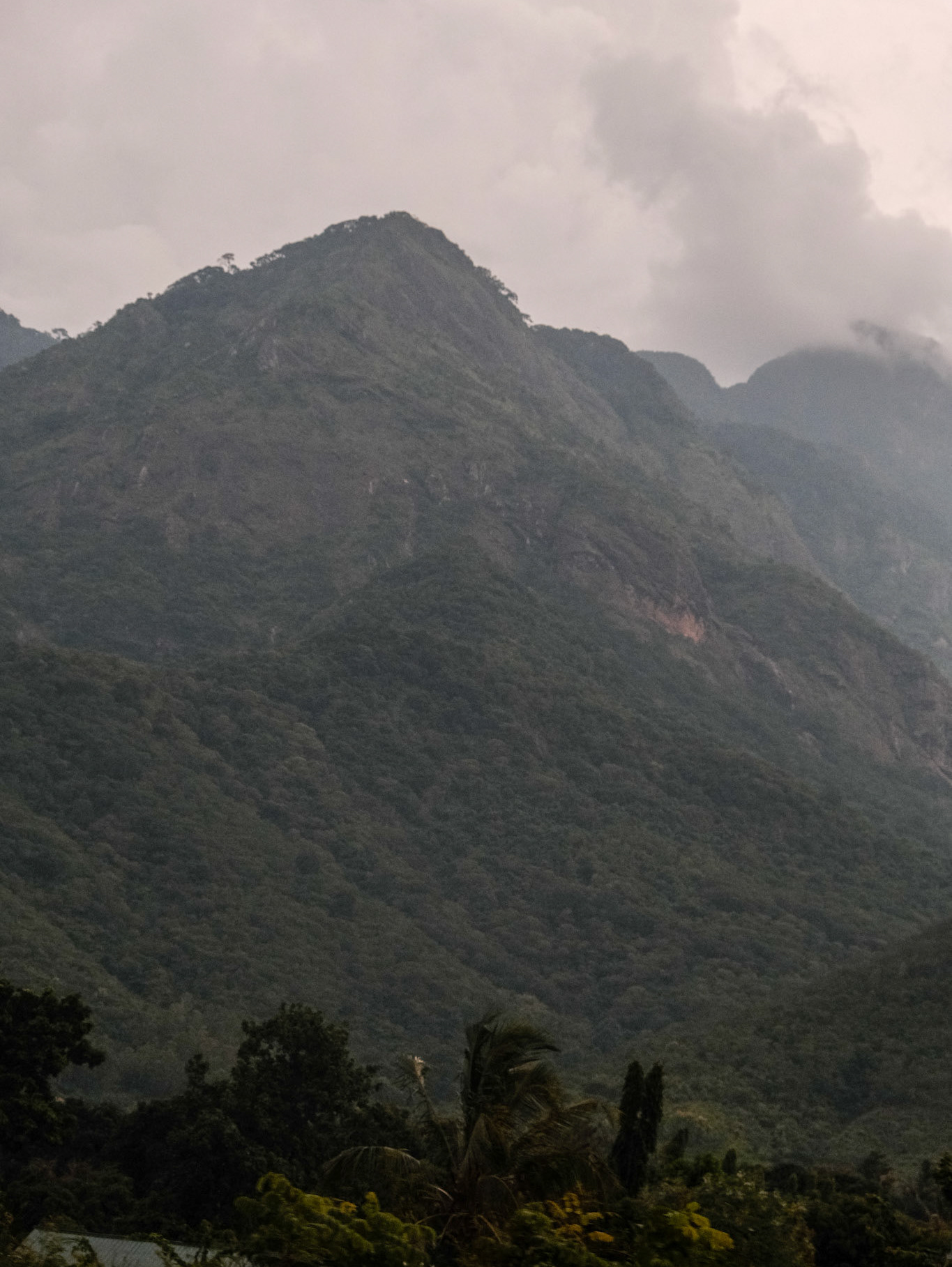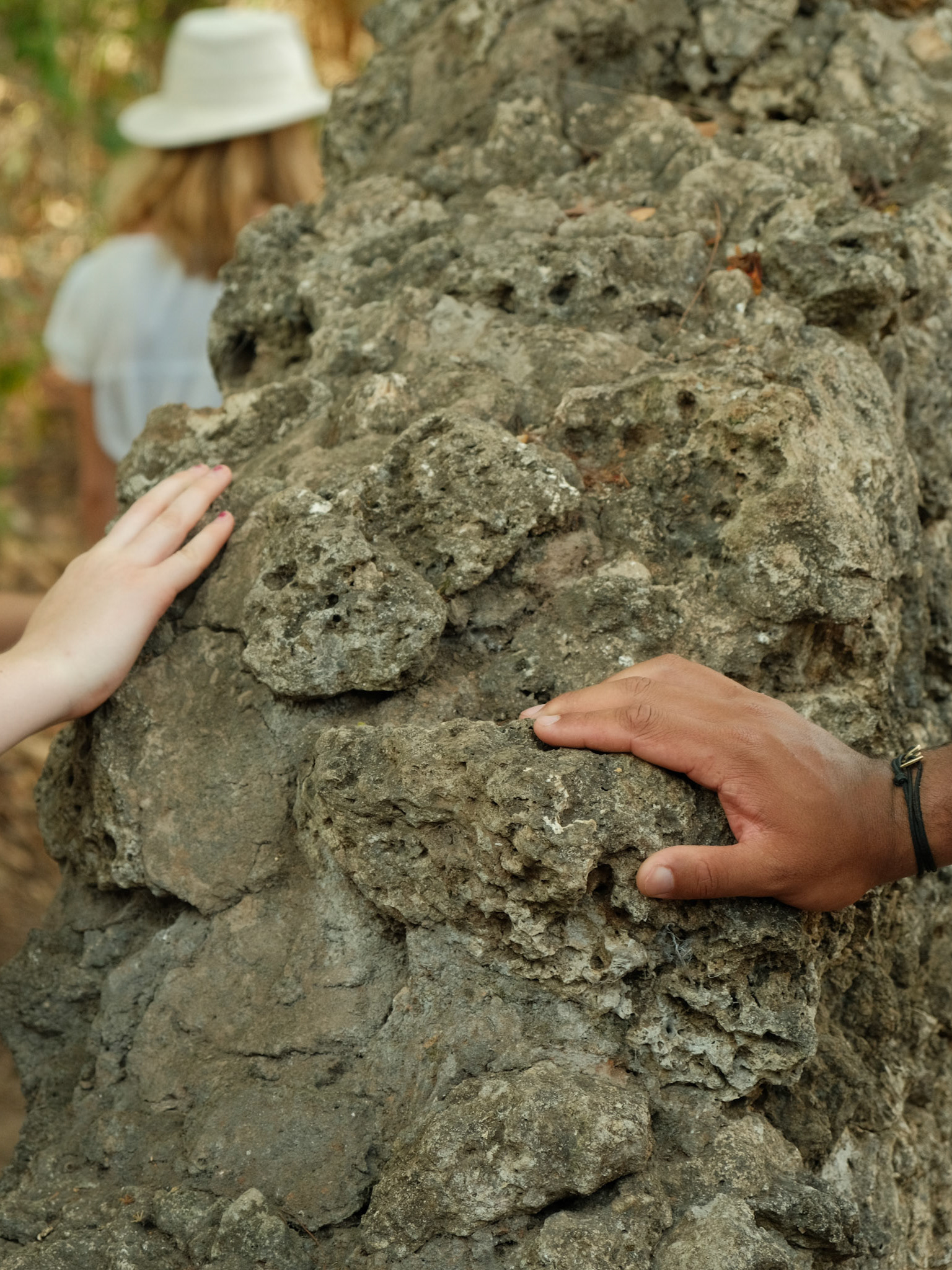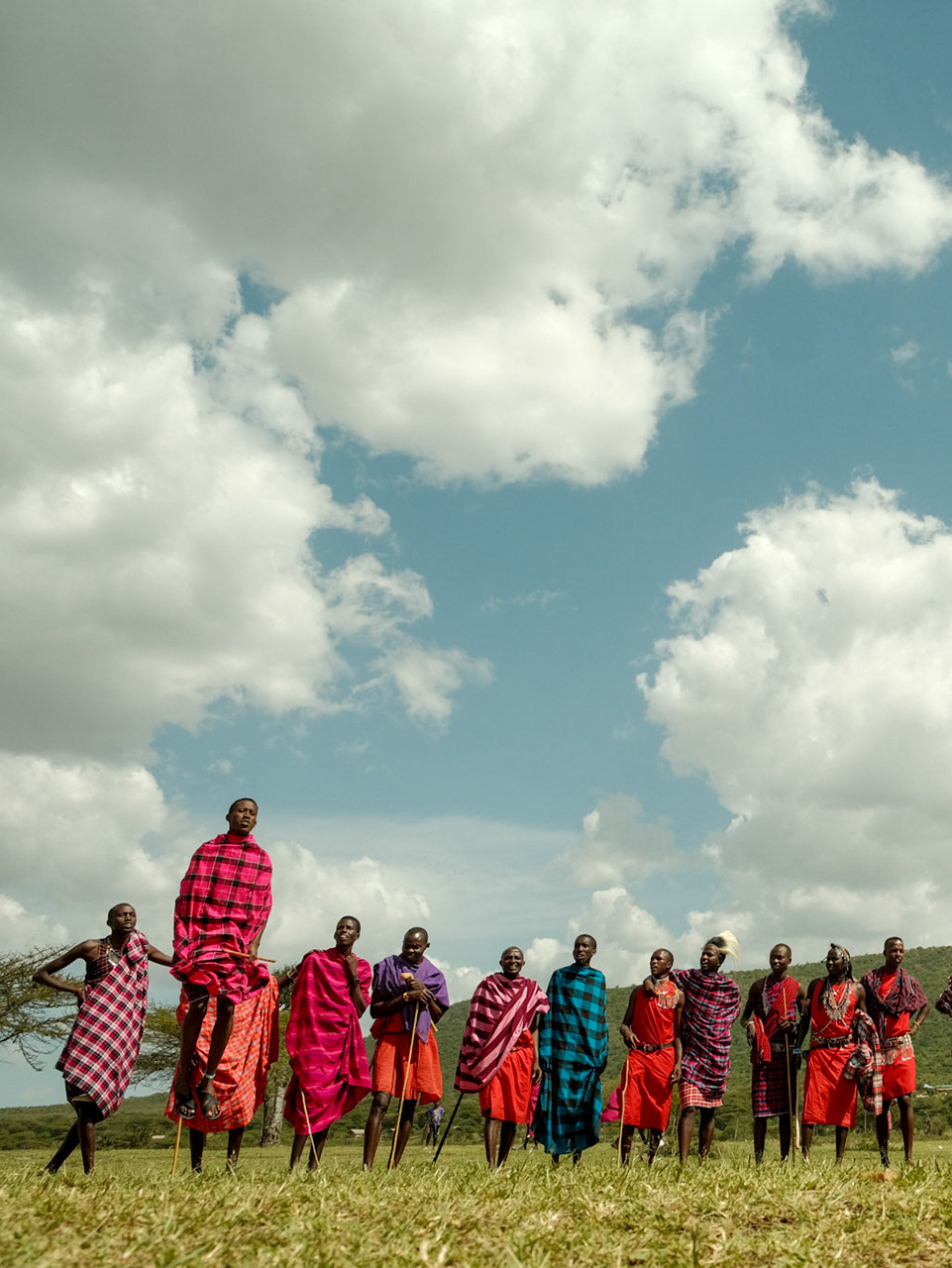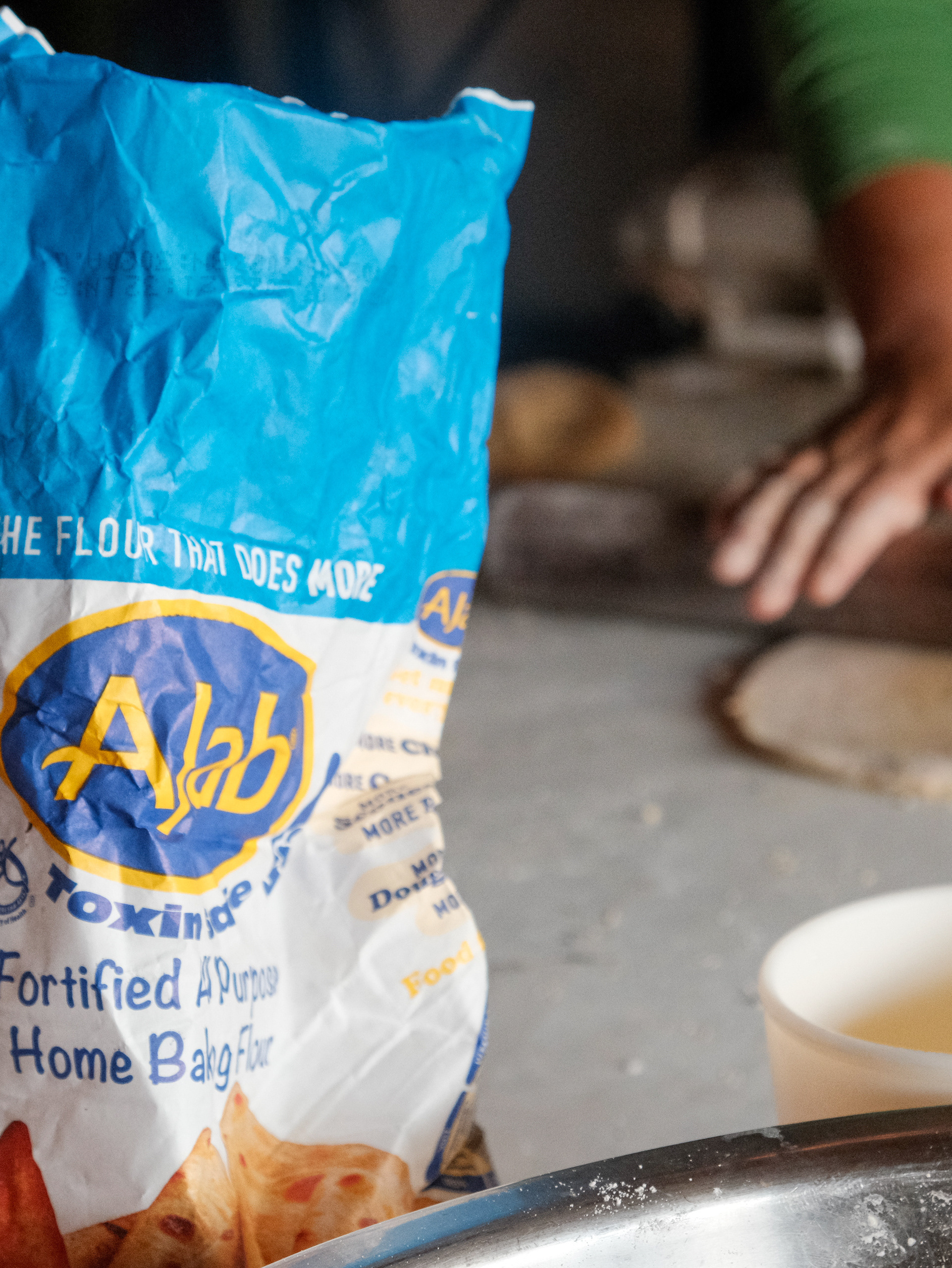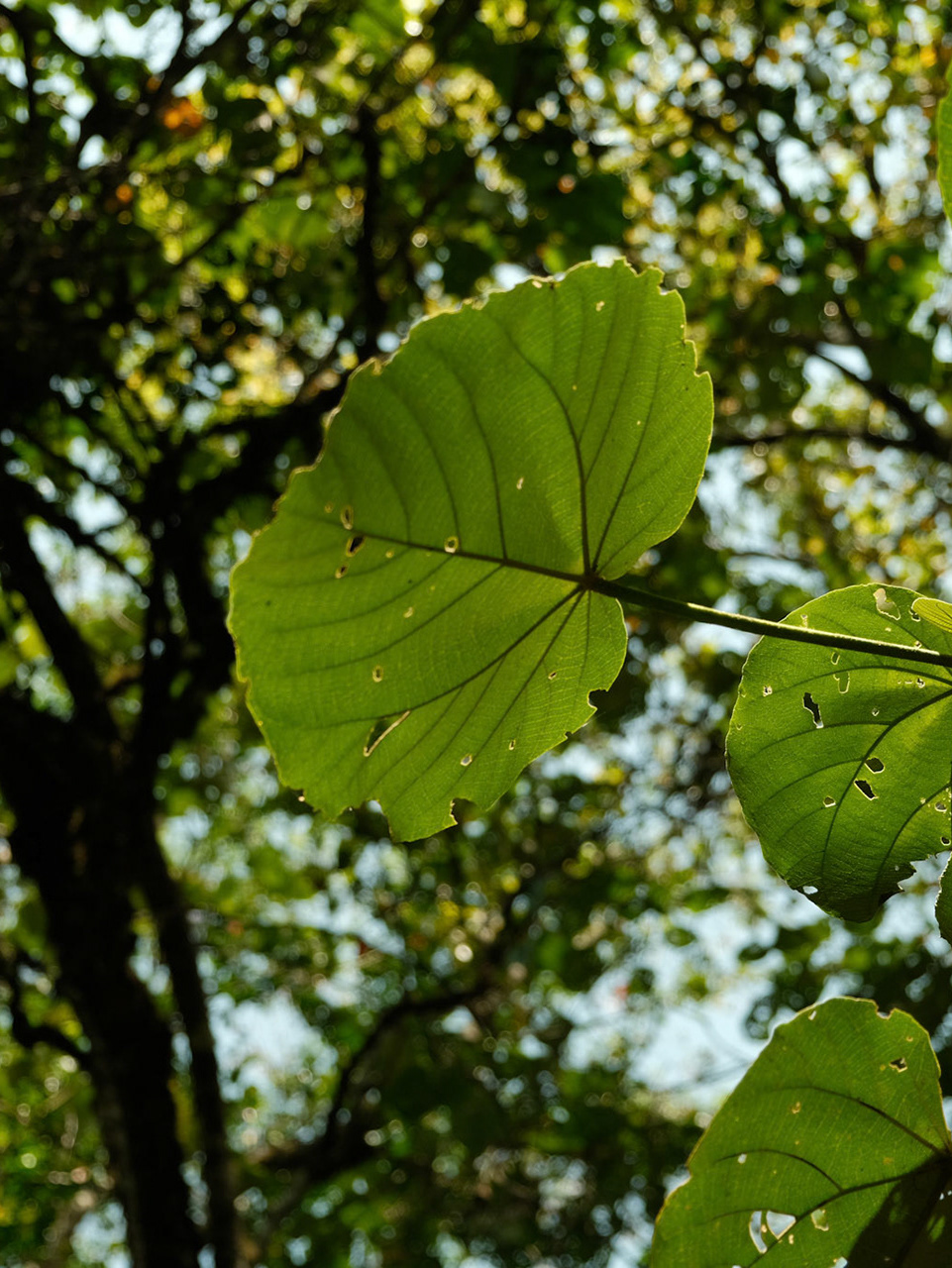Journal Entry
January 24th:
note: Maji Moto in Kiswahili means "Water Hot"
"Two hours away from the Maasai Mara Reserve, Maji Moto landscape looks already very different from the grasslands and open bushlands we witness during safaris. The land is dry, the cows are skinny. The whistle of wind through bushes imitates the sound of rain, but in reality, this land and its people haven't seen or heard the rain in a long time. In the middle of this harsh environment, like a green oasis, the waters of the hot spring give rise to tall trees that seem out of place in this landscape. The water also brings people and animals together. This hub is a place for bathing, laundry, cattle drinking, and water fetching. Motorcycles and donkeys gather around the stream waiting to be loaded. The rusty and leaking water pump on top of the hill syncs its sounds of squeaking with the wind.
At our campsite, a canopy of euphorbia trees provides shade to our little village of tents. This site feels like greedy luxury in the middle of the desert. A bar, toilets, warm showers, and electricity are a privilege here. This is definitely within my comfort zone but far from most realities outside our camp bubble.
The nighttime in Maji Moto feels so special. The void feeling you get from looking up at the shining sky is filled by the strong winds you hear coming from far away. Now that the land has cooled down, the peaceful silence is occasionally disturbed by hyenas' laughs. Moths and many insects come alive around the bathroom lights. These nights are highly contrasting with the arid days."
January 27th:
While preparing for our homestays, nervousness and excitement were shared among us. After meeting our guide/translator, we started walking towards the Manyatta (Maasai House) that would host us for the night in groups of 3. We were told that we needed to walk 3 km to get there but we quickly realized that distance might double because of all the fencing characterizing the landscape and demanding detours.
As we enter the manyatta, my flight reaction is triggered by the smoke, the flies, and the lack of light. But I stay. With eyes tearing up from the smoke and a sense of panic invading me. I have rarely felt so uncomfortable physically but I was soon put at ease with a warm welcome and a cup of tea. That evening and the next morning we discussed about the differences and similarities of our lives with our host mother, the neighbors, and the kids. We "helped" with various chores like cooking, dishwashing, milking the cows, and fetching water.
.......
.......
"
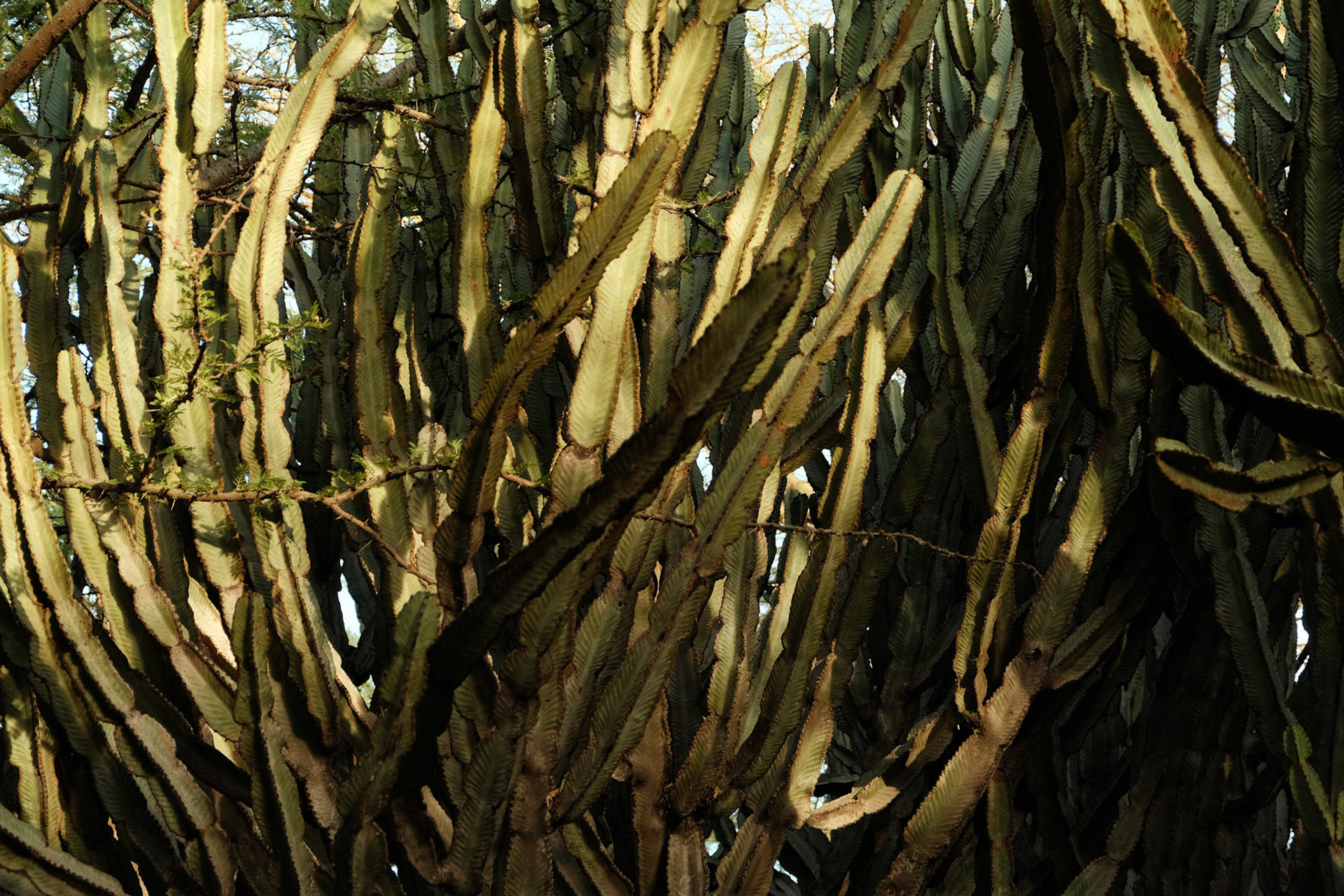
Euphorbia trees surround our tents. Its sap can cause blindness.
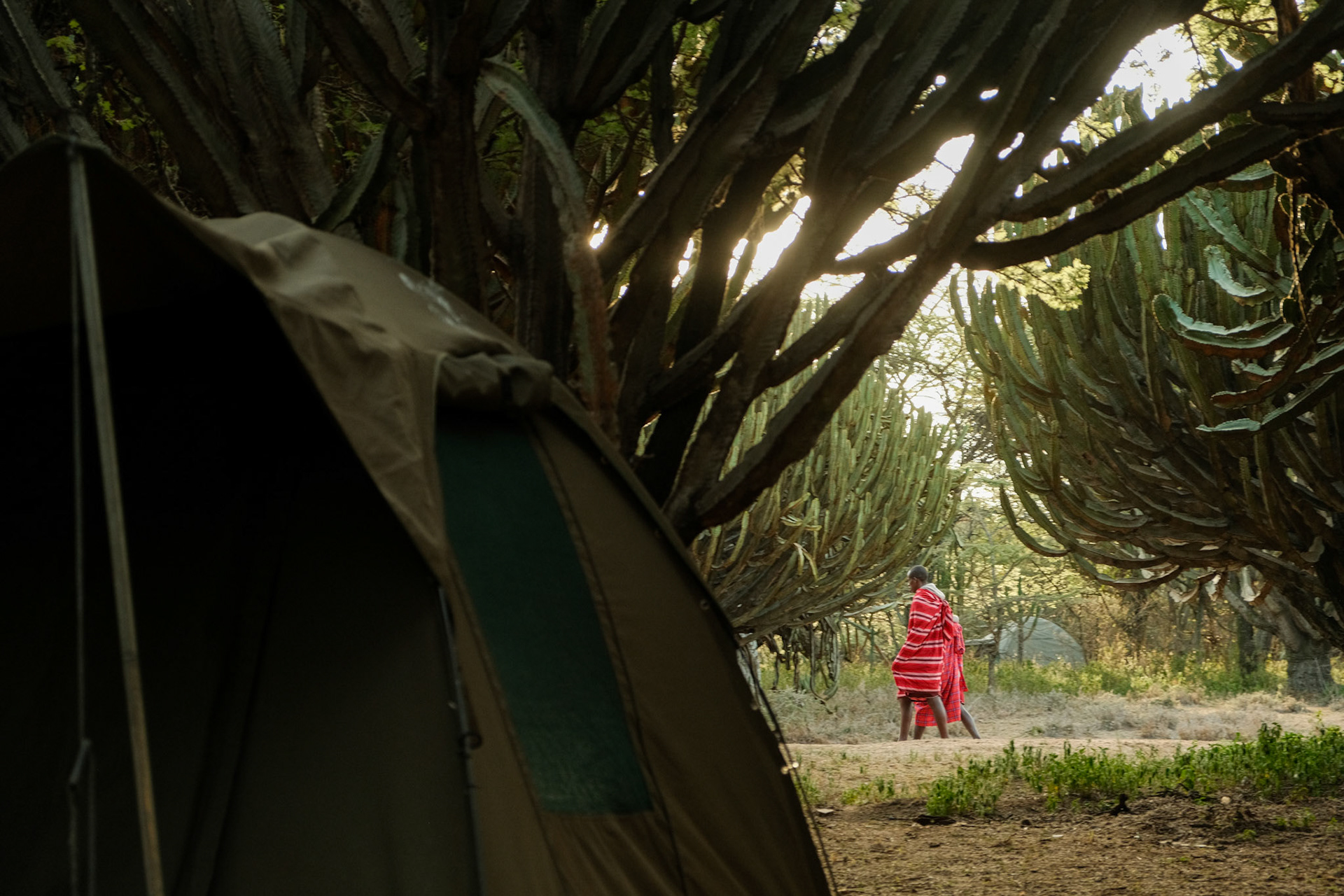
Earling in the morning, Maasai guards are doing rounds around the campsite.
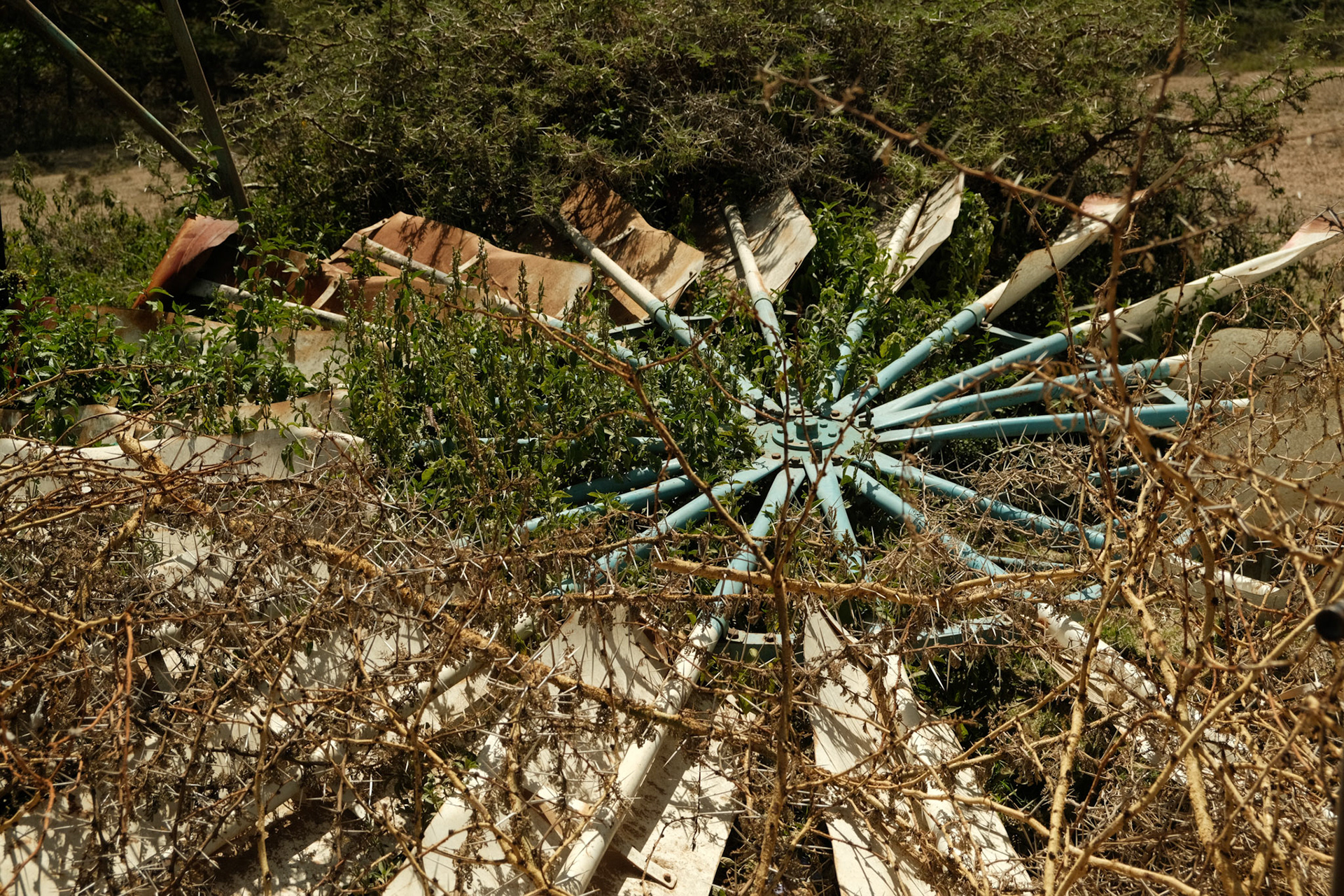
The broken windmill of the water pump used to irrigate fields nearby
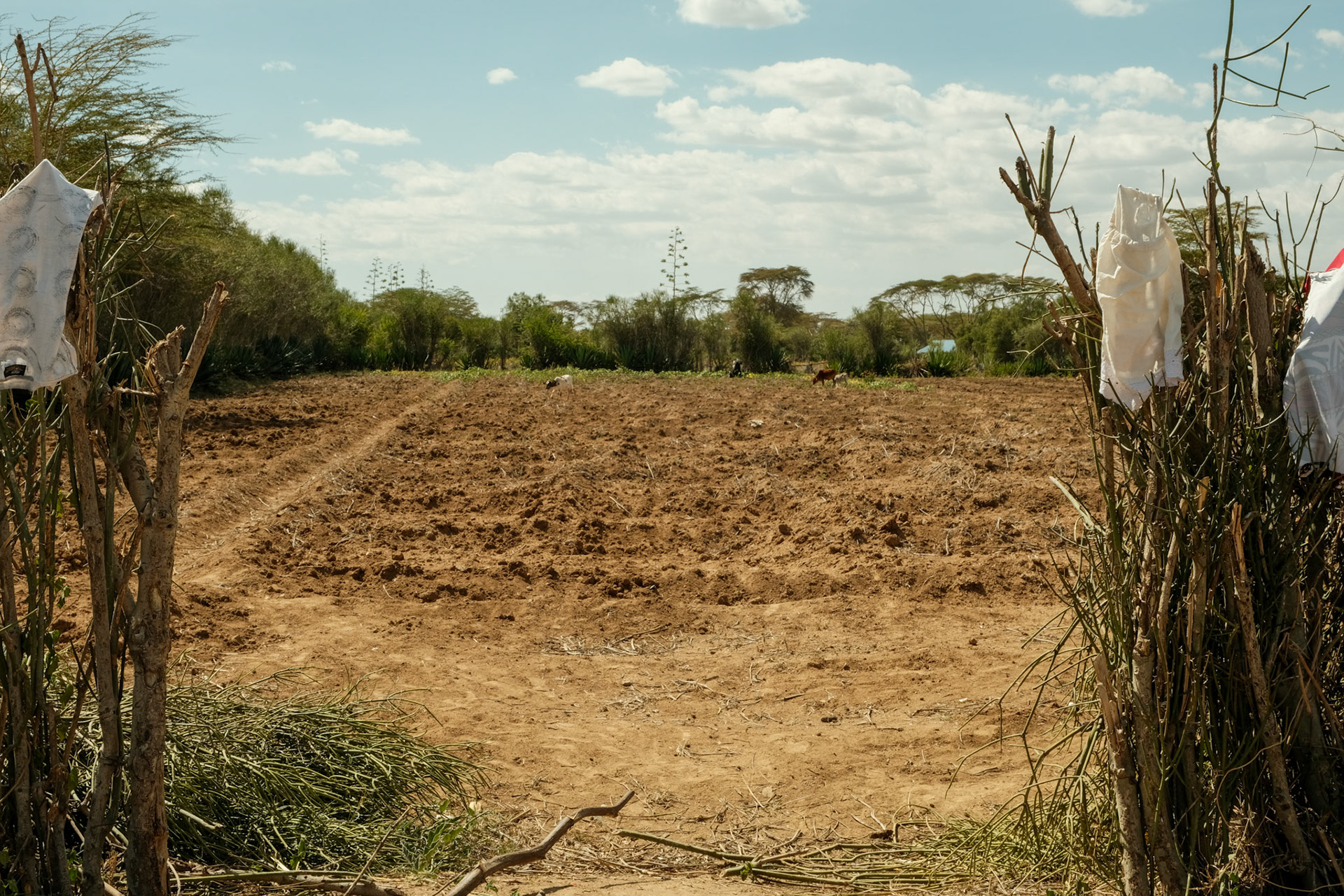
Nothing has grown on this field for the past 5 months.
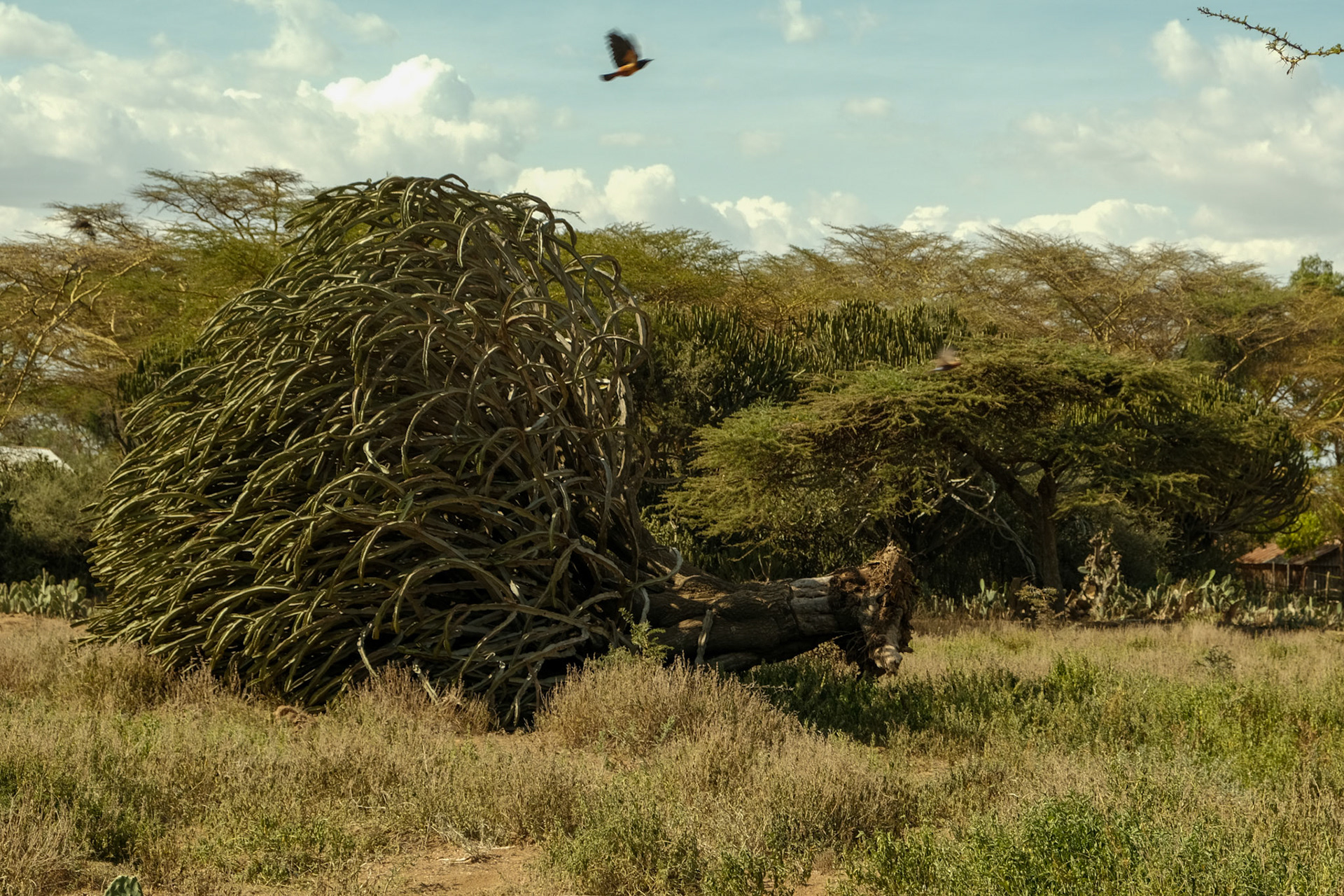
A tree propably uprooted by a wind gust.
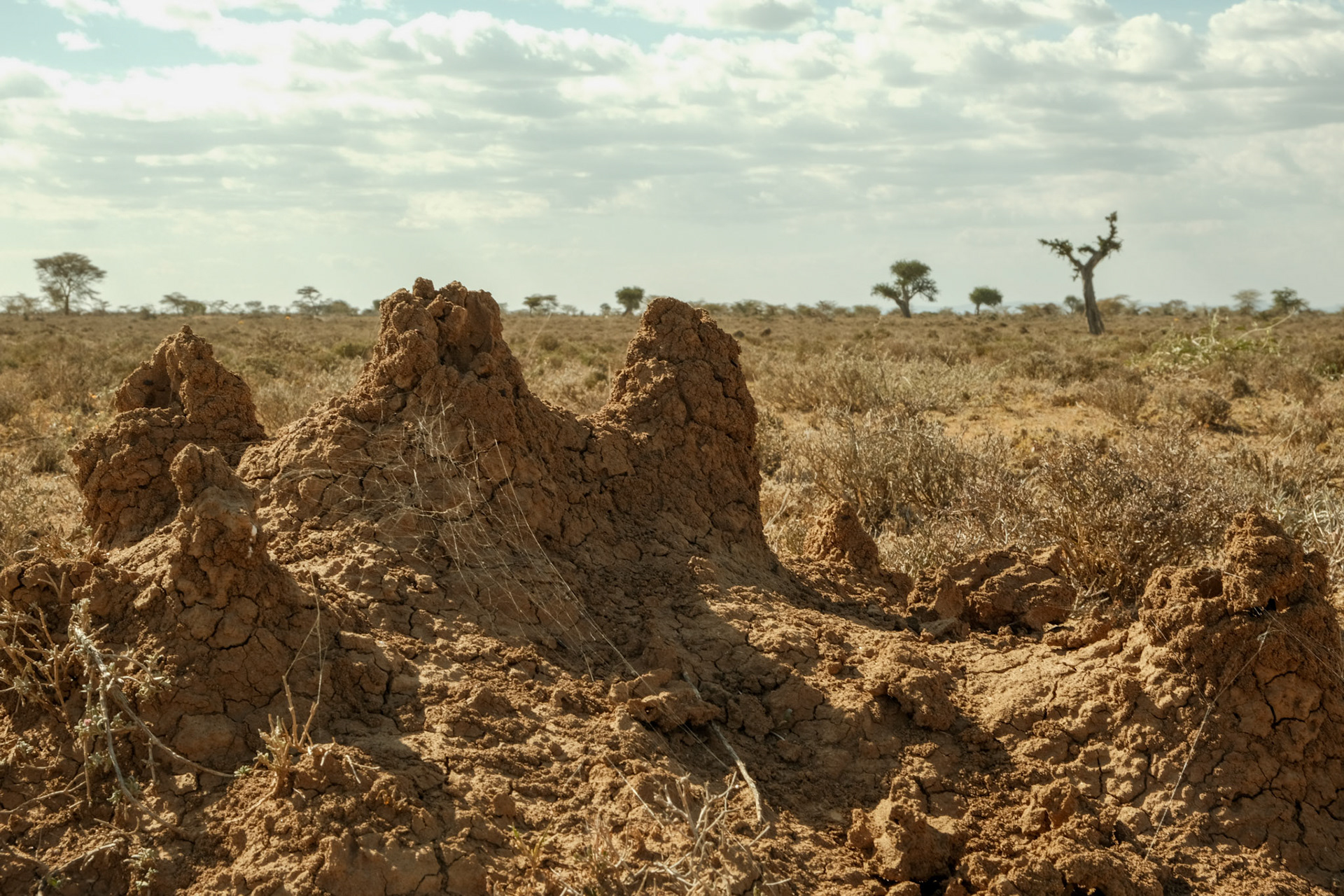
Anthill in a dry landscape
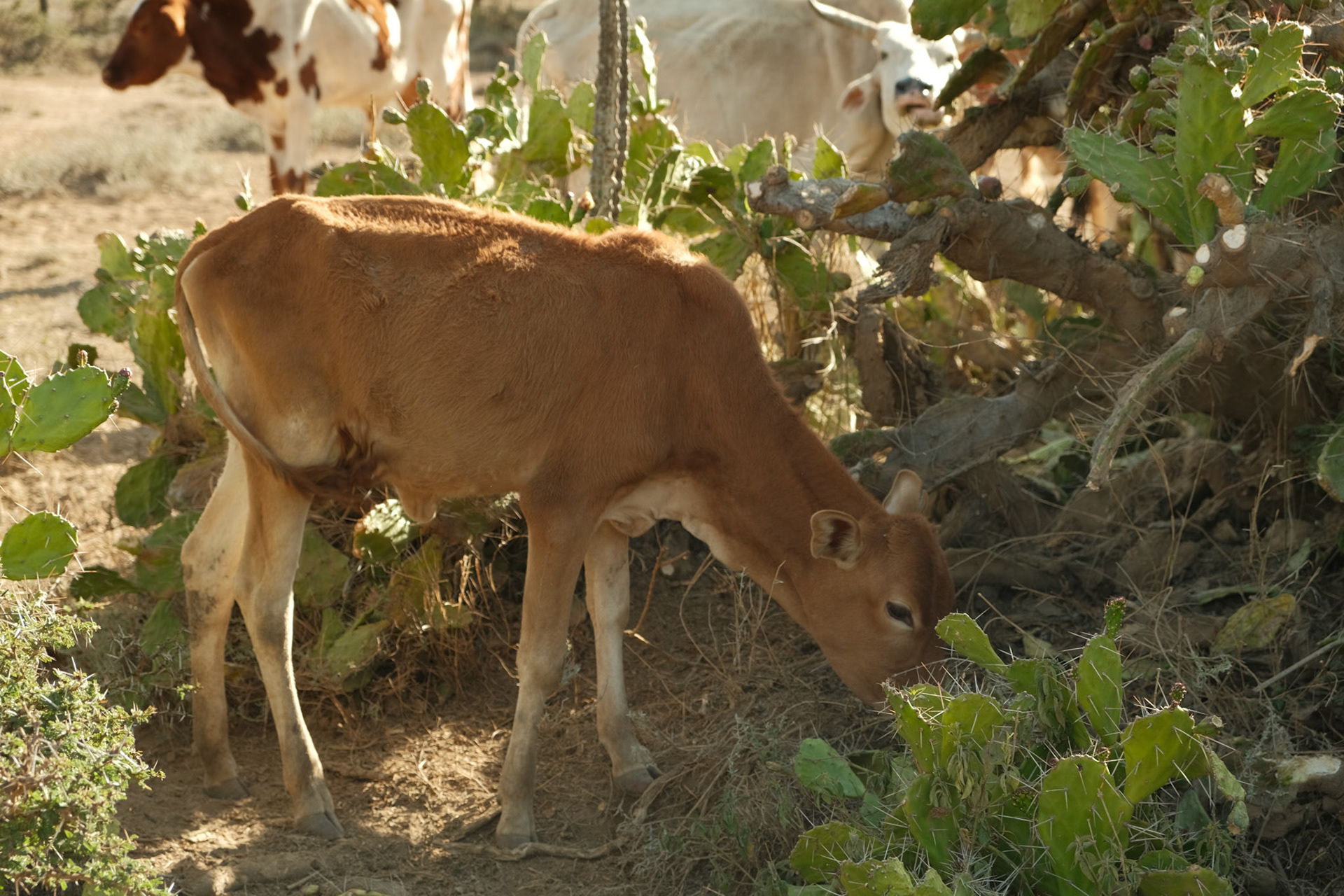
Cows are seen feeding on cacti. The land is dry with no healty pastures.
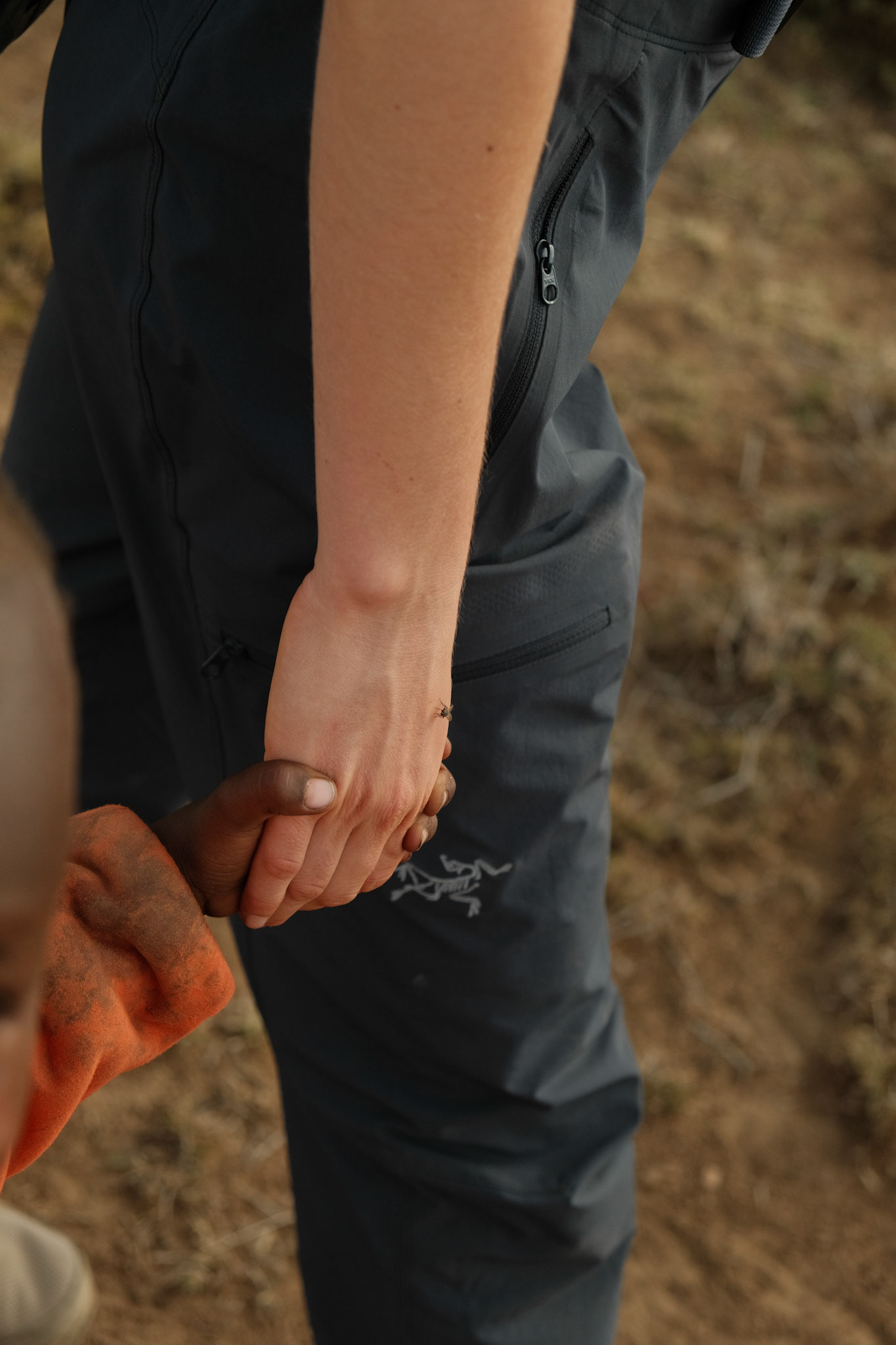
AFSS student and host kid walking together
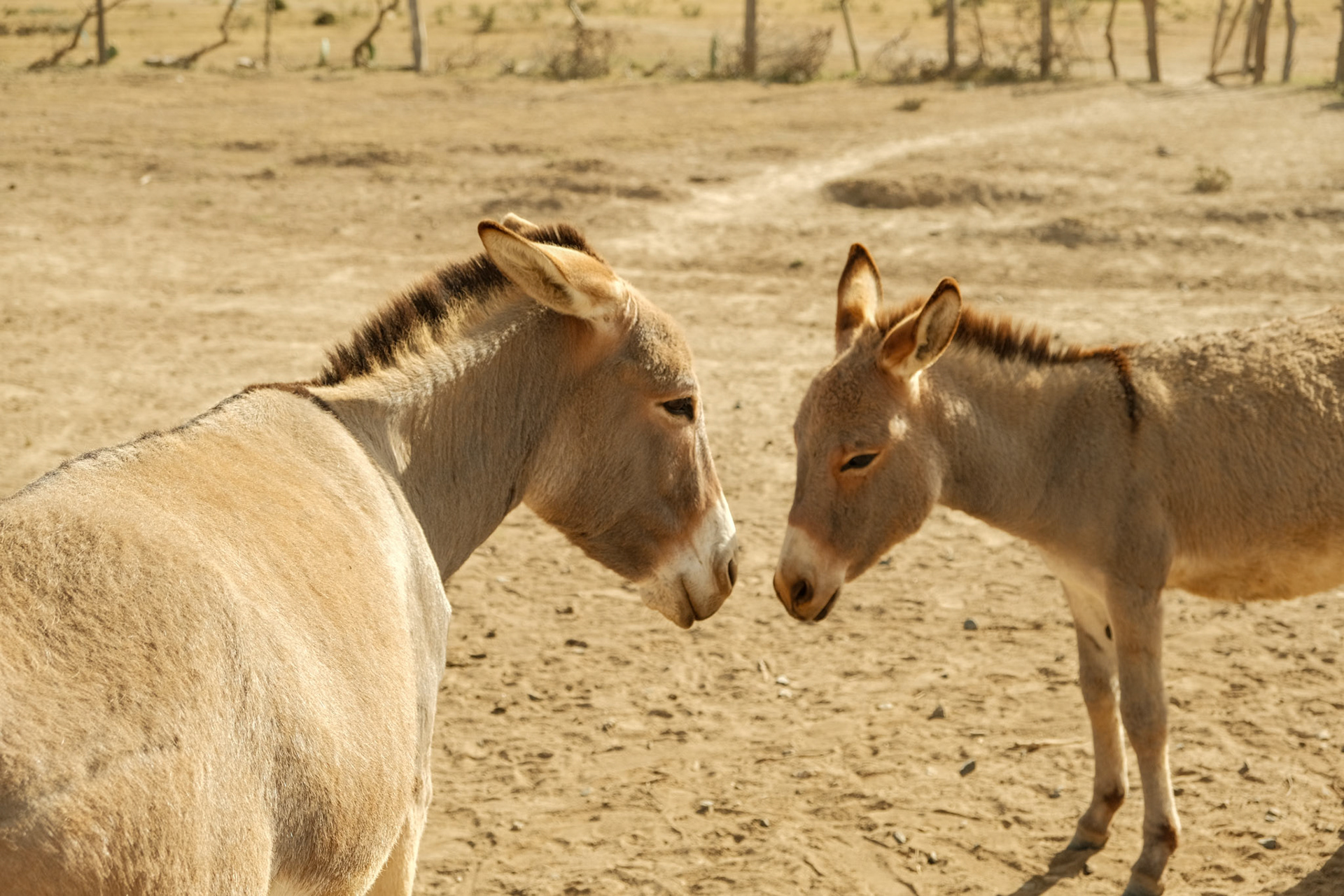
Donkeys and their owners come from far to this water point.
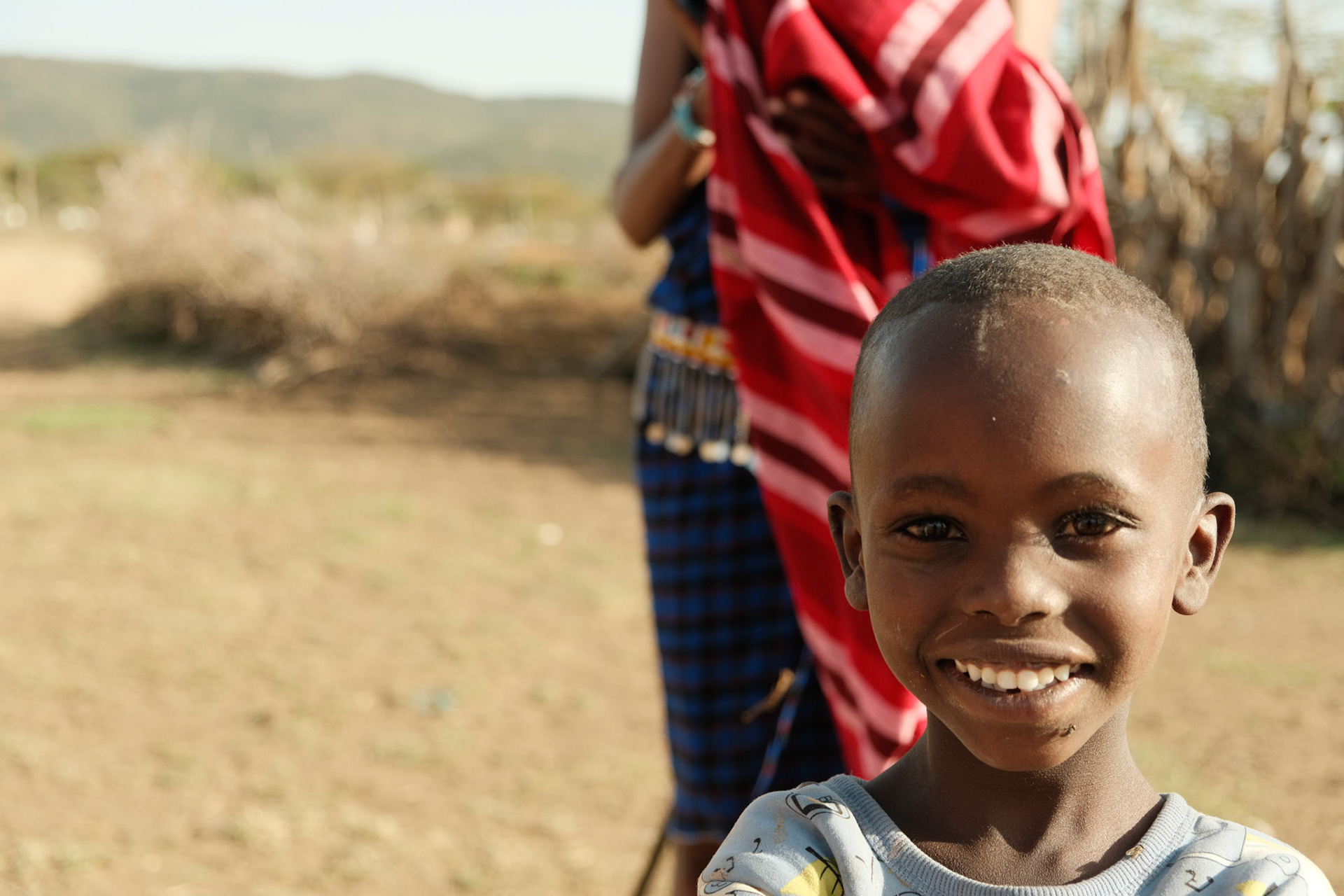
Olomiak and his siblings are joyful and curious kids. Olomiak (seen here) is particularly interested in my camera and the sound of the shutter
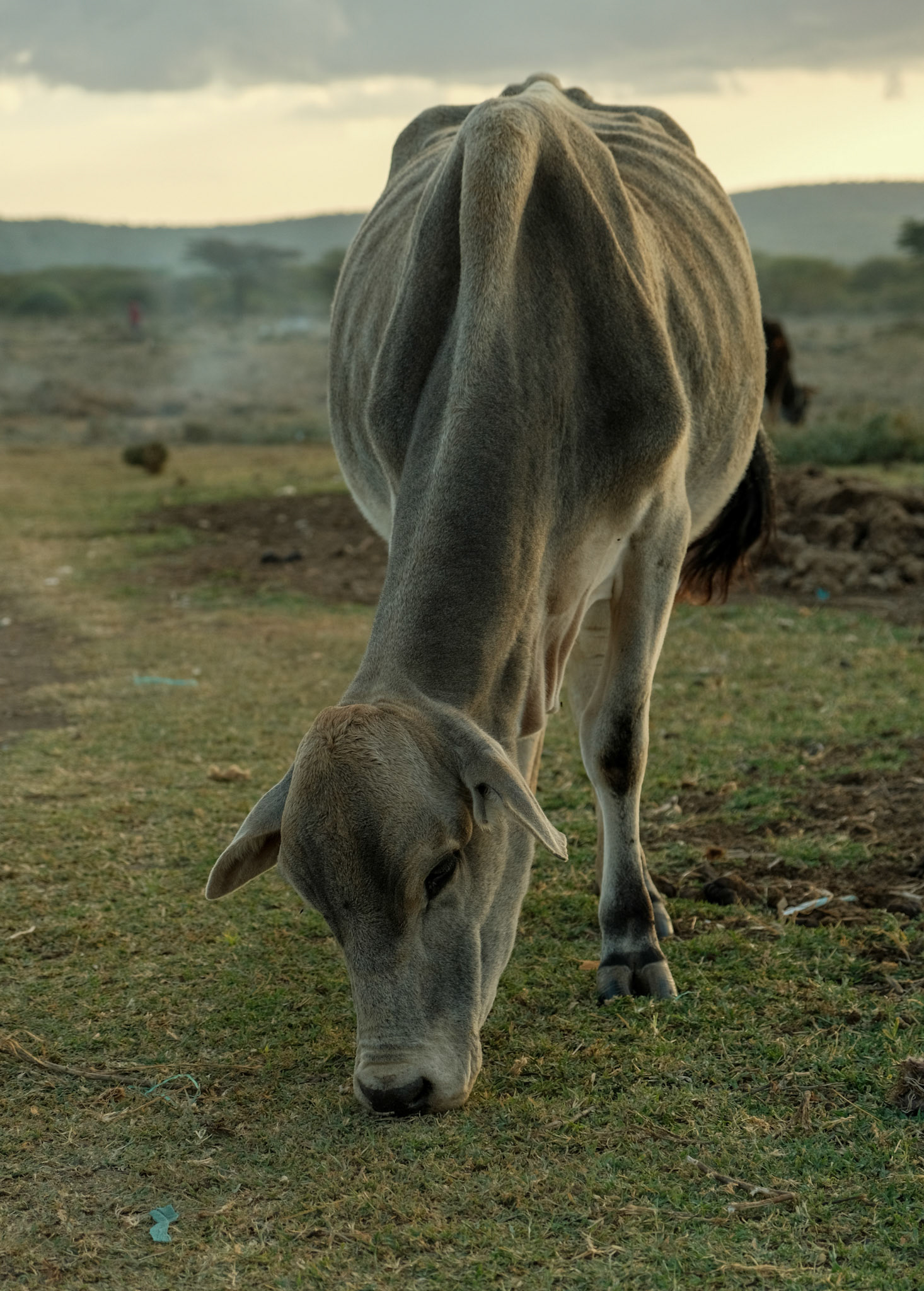
Cows here are geting skinny. They loose value and are not enough income for pastors anymore.
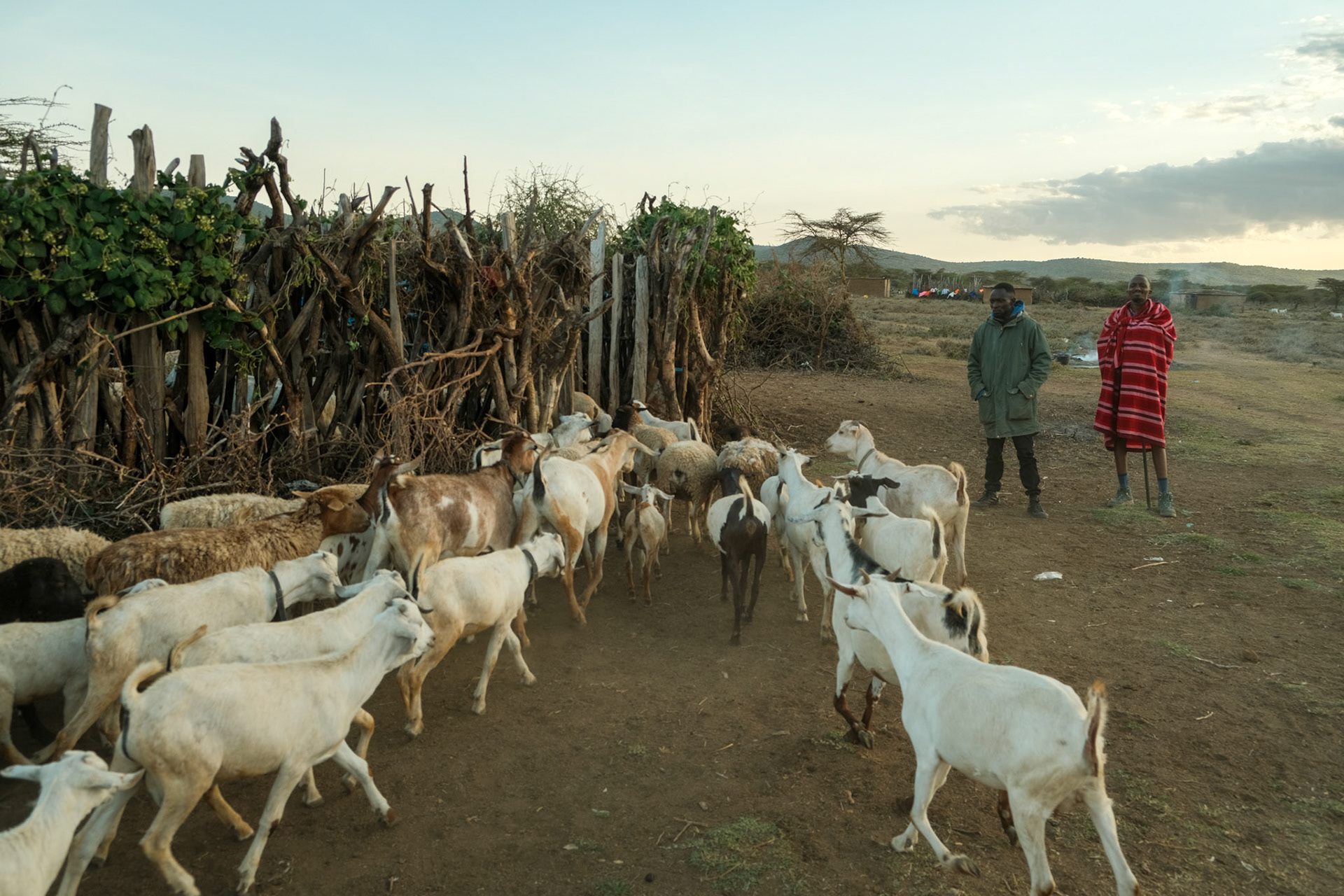
The goats are herd in their pen for the night to protect them from predators like hyenas
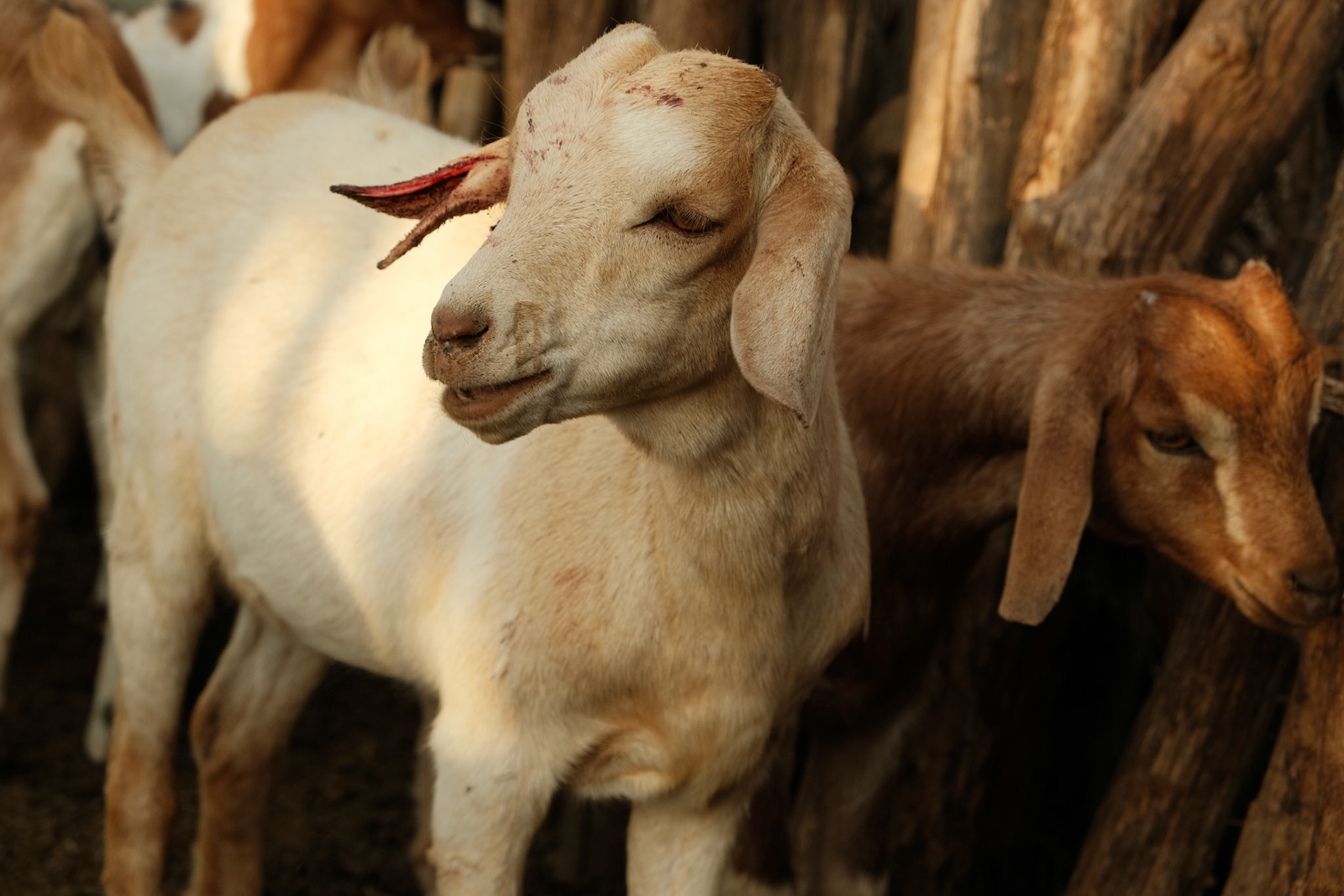
This goat got a slight in its ears to help identify its owner
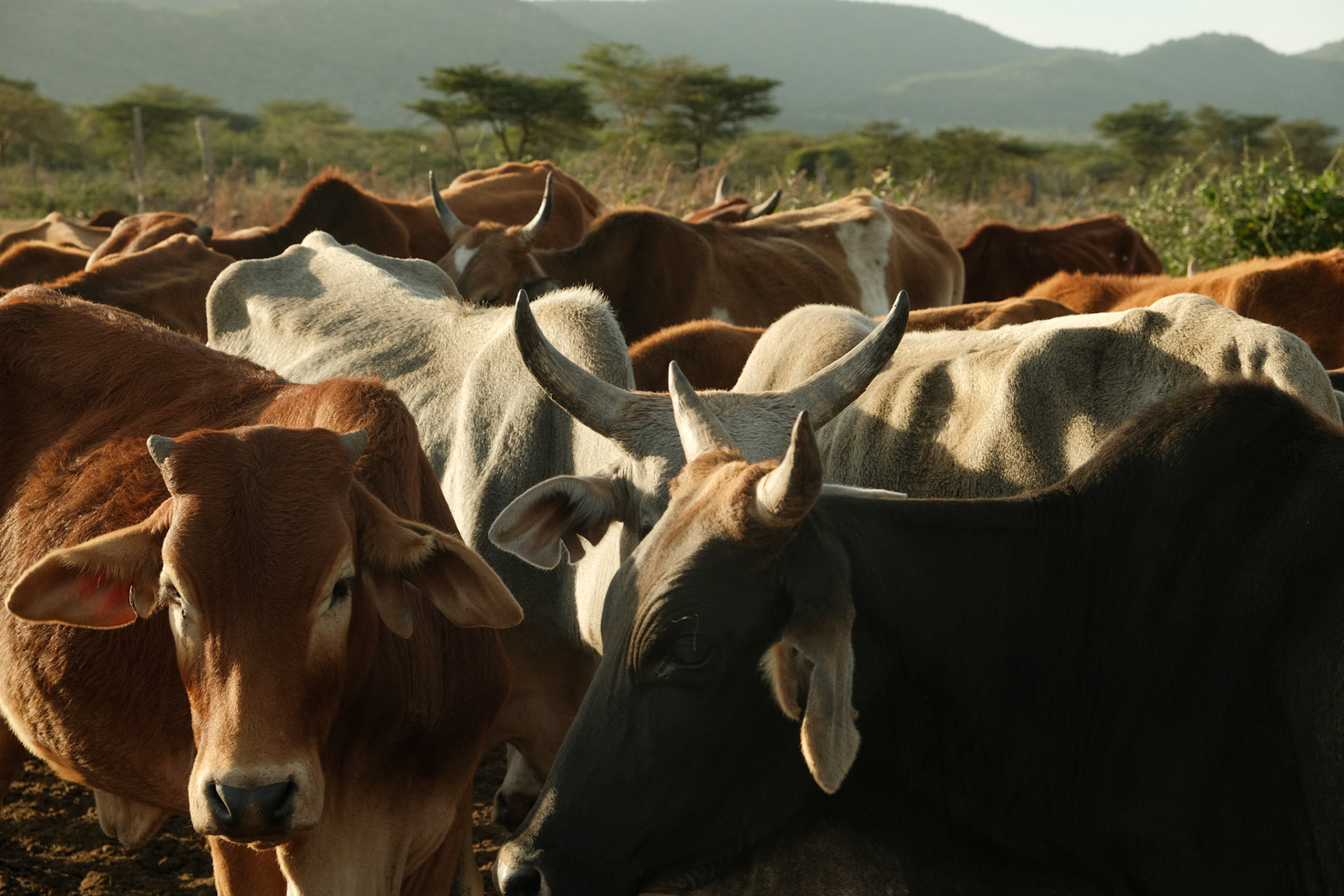
A lot of Maasai families live of pastoralism. Wealth is measured in cattle.
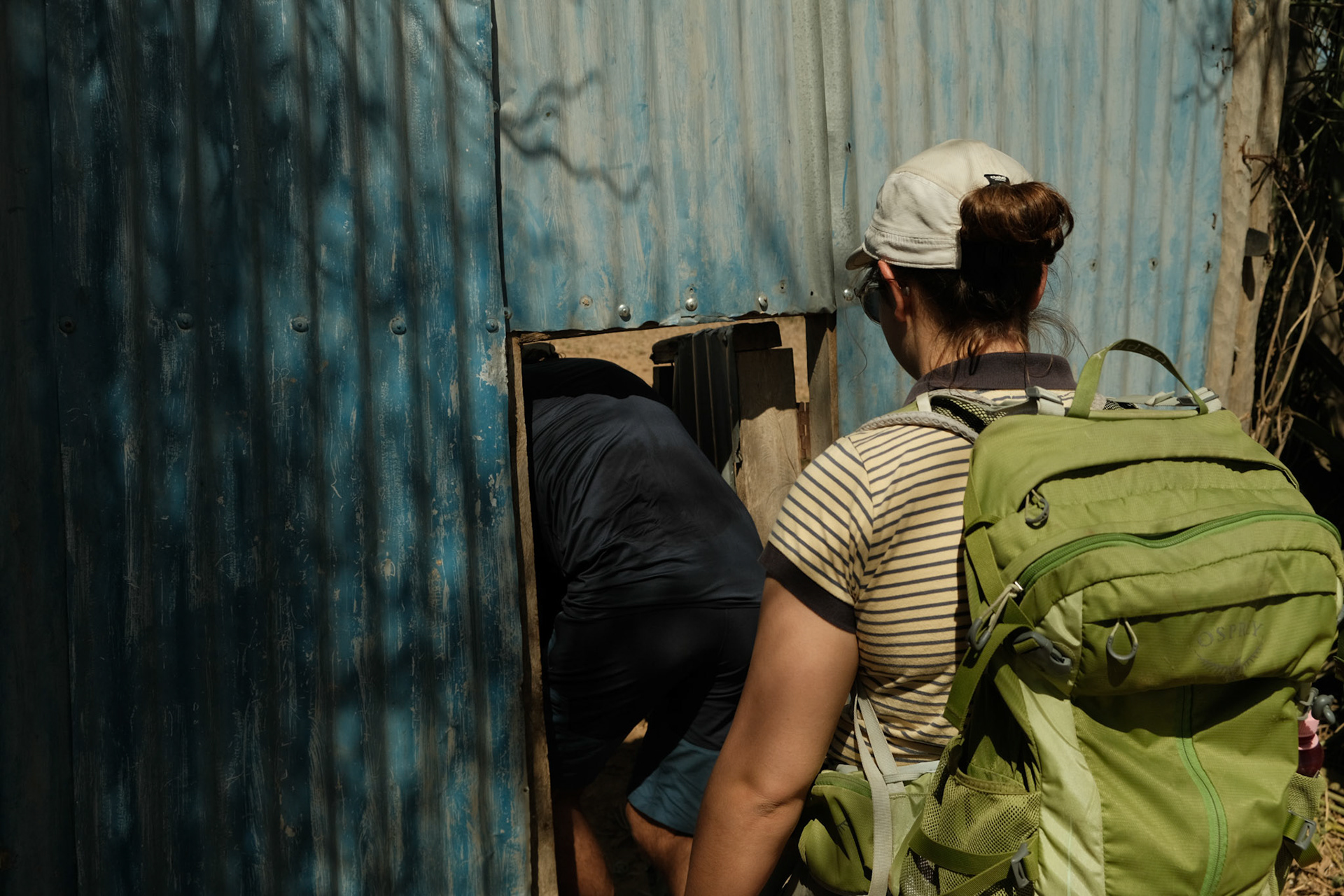
AFSS students entering a farmer's house to interview.
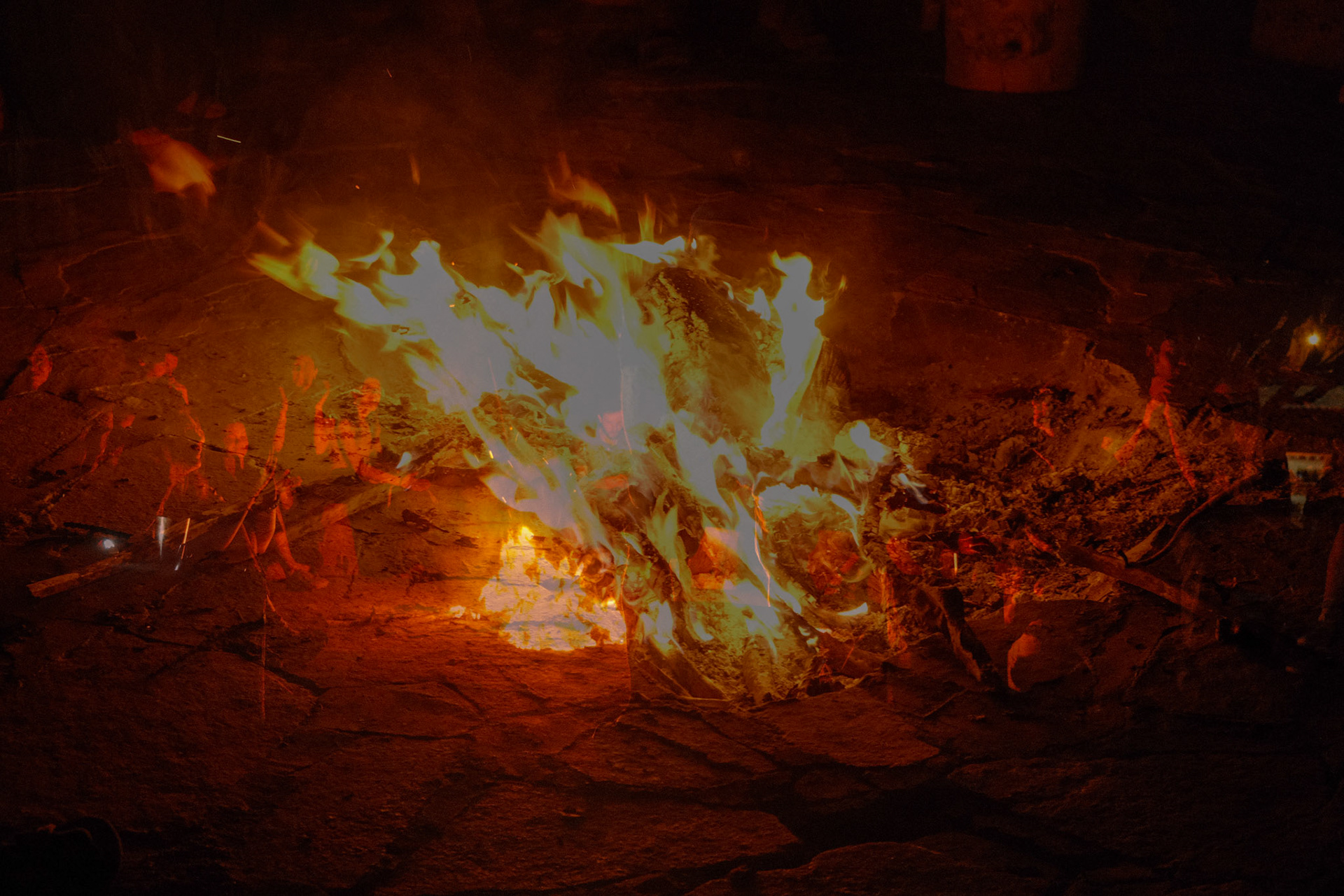
Talent show organized by AFSS students around the fire
